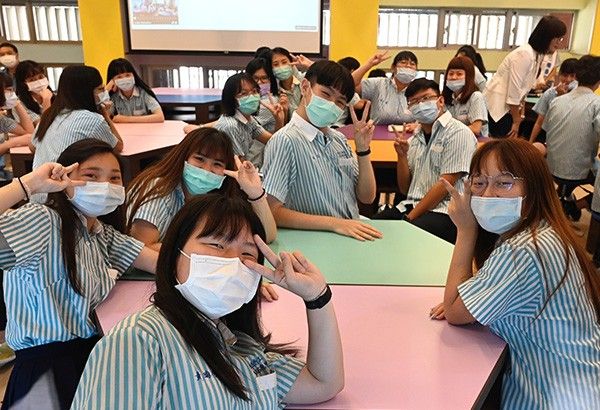How Taiwan flattens COVID-19 curve: Trade officials share observations

MANILA, Philippines — Last month, CNN is among those that listed Taiwan as one of the four places in the world that flattened the novel coronavirus disease 2019 (COVID-19) curve or mitigated the virus' community transmission.
According to the Journal of the American Medical Association, Taiwan did it despite its proximity to China because it already learned its lessons from the 2002 to 2004 Severe Acute Respiratory Syndrome (SARS) outbreak. Taiwan reportedly tackled COVID-19 with an "aggressive response," which included responding as early as December 31 when reports of the new virus emerged. The country was also among the first to assess those arriving from Wuhan and quarantine those with symptoms.
For James Huang, chairman of Taiwan External Trade Development Council (TAITRA), a non-profit government co-sponsored trade promotion organization in Taiwan, it is not the habits or lifestyle of the Taiwanese that made them successful in fighting COVID-19, but it is their attitude in handling the pandemic.
In an exclusive e-mail interview with Philstar.com, Huang shared: “I think it doesn't matter with our lifestyle or habits, but more related to the attitude we have and the response we provide when facing the situation."
Huang added that the Taiwanese government ordered ban on exporting face masks within three days of the first COVID-19 case in Taiwan.
“The first case of COVID-19 was discovered in Taiwan on January 21. Within 3 days, the government had implemented a ban on exporting face masks in order to ensure an adequate supply for citizens. Sales of masks was also strictly controlled, in order to make sure every individual had access to them, without people being able to buy and hoard masks for private use,” Huang said.
“The public was also quickly educated about proper procedures maintaining good hygiene, and mandatory temperature checks were established in all schools, as well as many other public spaces,” he added.
The Taiwanese also extended school breaks, so anyone who had been abroad would not be immediately reintroduced into classrooms.
“Crucially, the first local cases occurred during the Lunar New Year holiday, when many people travel back and forth between China and Taiwan. This made it imperative that we take action before the crisis was out of control; thus the winter break for schools was extended by two weeks, so that anyone who had been abroad would not immediately be reintroduced to a classroom environment,” he said.
“Hospitals also set up temperature check points, disinfectant stations, and established special protocols for handling COVID-19 cases, in order to prevent infections within health clinics. All of this was done with an urgency that demonstrates just how seriously the coronavirus situation was taken from the (onset)."
Recently, TAITRA launched products to help fight the pandemic, including Mediland's disinfection robots, Great Group Medical's respiratory devices, Apex Medical's healthcare solutions, Taiwan Stanch's surgical face masks, Onyx's telehealth and smart hospital goods, and vaccines and test kits from Medigen Vaccine Biologics and BluSense Diagnostics, all of which are for pandemic prevention.
Walter Yeh, TAITRA President and Chief Executive Officer, said at a recent online product launch that Taiwan has already established a well-organized deployment and pandemic prevention product ecosystem that will broaden the horizon and scope of the supply chain for Taiwan's medical industry.
The one-hour launch was part of a series of events the organization held to highlight Taiwan's strengths and to boost economic activities amid the global standstill, according to the trade promotion body.




















